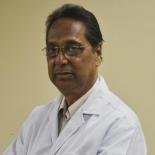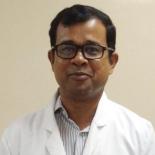About Dental Science
Dental science is a branch of medical science that deals with diagnosing, treating, and preventing oral health problems pertaining to teeth, gums, mouth, and supporting structures. It encompasses a range of dental professions with the goal of preserving oral health. Teeth are an essential part of the body, the gateway for food and drink to enter the body. They play an important role in eating, chewing, speaking, and overall health. They are of different sizes and shapes. They help you form sound and speak clearly, and they are an important part of your smile. In this aspect, teeth are related to your confidence and social engagement. So, the first person to see if you have dental health care problems is a dentist, who treats and helps you take care of your dental health.
Dental Department
Dentistry is the area of medicine that mainly focuses on teeth, gums, and mouth. It is also referred to as dental medicine and oral medicine. It comprises the investigation, diagnosis, prevention, treatment, and management of illnesses, ailments, and disorders of the mouth, with a common emphasis on dentition (the growth and placement of teeth) and oral mucosa. Dental science also deals with the temporomandibular joint, the two joints connecting the lower jaw to the skull and other craniofacial complex components, which comprise the head, face, and oral cavity.
A dental team, including a dentist and dental auxiliary professionals like assistants, hygienists, technicians, and therapists, performs dental treatments. The dental department comprises the following health professionals:
- Dentists: A dentist is also referred to as a dental surgeon. They are a medical specialist who specialises in dental science. The main aim of a dentist is to provide oral healthcare service. A licensed dentist can carry out dental treatments, such as root canal, which is also referred as endodontic therapy, oral surgery (teeth extraction), prosthodontic (crown/bridge), periodontal therapy (gum therapy), and many other disorders. They also perform examinations like taking X-rays, radiographs, and other diagnoses. They are also involved in oral surgery procedures, like dental implant placement. They also provide treatment by giving medications like antibiotics, fluorides, local anaesthetics, and sedatives while performing surgeries and many more.
- Dental assistants: They assist dentists in delivering more effective dental care. They are responsible for supporting the dentist by passing instruments during dental procedures, helping patients with oral hygiene, getting them ready for treatment, and sanitising the equipment required for dental procedures. They also help with giving general anaesthesia, setting up suction devices, exposing radiographs, taking impressions, documenting patient information, and performing administrative roles like making a patient’s appointments.
- Dental technicians: They set up teeth by making removable prosthetics made of resin or metals and mold the neck of the tooth. They are also in charge of casting dental rods and designing the wax patterns of removable prosthetics, like bridges and crowns.
- Dental therapists: They treat adults and children in need of preventive and restorative dentistry. Their specific function varies and depends on their training as well as the national dental laws and policies, as they may vary from country to country.
Diseases treated by a dentist
Dentists provide treatment for a wide range of dental diseases and disorders. Some of them are as follows:
Periodontal disease
It is a condition that causes inflammation and infection of the tissues that support teeth. It is also known as gum disease. It is mainly caused by poor hygiene. The symptoms include bleeding gums, bad breath, gum recession, loose teeth, reddish gums, and swollen gums. Periodontal disease has several stages, which are as follows:
- Gingivitis: It is an early stage where red gums start bleeding when they are disturbed by objects like a toothbrush. This stage is treatable, and there is no bone loss.
- Mild periodontitis: In this stage, the bacteria causing the infection affects the supporting bones, where gums are pulled away from the teeth, creating a hollow space around them. Plaque and bacteria reside inside these hollow spaces and cause more infection.
- Moderate periodontitis: In this stage, the bacteria begin to erode the ligaments, soft tissues, and the bone supporting the teeth. This leads to bad breath and pus around the gums.
- Advanced periodontitis: This is the last stage wherein the bones are completely infected, and the teeth begin to fall off due to infection.
Tooth decay
Tooth decay is the most common dental problem seen in all age groups. It is caused by bacteria forming a thick layer called plaque on the tooth surface. Plaque is formed by the acids produced by the bacteria from sugars that you consume in food. This acid permanently damages the outer layer of the teeth, which is called enamel. The damage on the surface of the teeth leads to cavities/holes, causing severe pain. The symptoms include bad breath, severe pain, brown spots on teeth, and loss of taste.
Sensitive teeth
It is a condition where teeth become very sensitive to hot and cold due to damaged enamel, and the outer layer of tooth and dentin is exposed. Dentil is made up of sensory nerves. When hot or cold substances reach it, it leads to nerve pain. It is often known as dentin hypersensitivity. It is caused by root infection, broken tooth, and gum infection.
Receding gums
It is a condition where the delicate root of teeth is exposed, making it susceptible to damage. It is caused by poor oral hygiene, brushing too hard, and smoking. Receding gums can cause severe pain and sometimes bleeding. The symptoms include toothache, bleeding gums, swollen gums, and bad breath.
Root infection
It is a condition where the base of the tooth is infected by bacteria due to cavities, cracks, or fractures in the tooth. It damages the nerve tissues and causes abscesses. It causes chronic toothache where chewing and biting food will be extremely painful, and the part of the mouth that is infected will be very sensitive to hot and cold.
Enamel erosion
It is a condition where the outer layer of teeth is washed out. This layer develops slowly and leaves teeth discoloured and round-looking. It is caused by the consumption of sugary and acidic food, like soda and carbonated drinks, over a long period of time. It leads to sensitive teeth that are more susceptible to cracks.
Teeth grinding
It is a condition that damages the teeth and leads to jaw pain, headache, and earaches. It usually develops during sleep. It is caused by abnormal bites or a new filling that is higher than your teeth. It is often known as Bruxism.
Treatment
A wide range of treatments are available to treat the dental conditions, such as:
Non-surgical treatments
- Dental prophylaxis: It is a treatment that involves routine dental cleaning where the dentist removes plaque and tartar from the surface of the teeth. The main aim of this treatment is to keep harmful bacteria at bay.
- Scaling and root planning: It is a deep dental cleaning process where plaque and tarter are removed from beneath the gum to the surface of the teeth. It also smoothens away the rough spots on the teeth roots. It helps prevent bacteria and plaque from reappearing.
- Antibiotic therapy: Antibiotics are prescribed by dentists to treat gum diseases where the drugs kill the bacteria and reduce infections. It is administered orally.
- Laser periodontal therapy: During this treatment, dentists use tiny lasers to remove diseased or damaged tissues and kill bacteria beneath the gums.
Surgical treatments - Pocket reduction surgery: It is a surgical procedure where the dentist makes a small incision along your gum line and temporarily moves gums away from the teeth, allowing them to view the roots underneath. Then, they remove the plaque and tartar buildup and clean the root surface. They also smoothen and reshape the damaged bones, preventing bacteria from residing inside. After this, they reposition the gums and suture them into place.
- Bone grafting: A dental bone graft is a treatment where the damaged bones are rebuilt by a synthetic or donated bone. It serves as a scaffolding that holds space until the body regenerates new bone. It is performed in combination with pocket reduction surgery.
- Gum grafting: It is a treatment where the damaged gums are replaced with healthy tissues, which may be synthetic or donated, to treat gum recession.
- Cosmetic dentistry: It is also known as aesthetic dentistry, which is done to improve the appearance of teeth, gums, and smile. It involves procedures like teeth whitening, dental crowns, dental veneers, and other related procedures.
- Guided tissue regeneration: It is used to treat the gaps between tooth root and bone caused by periodontal disease. The procedure involves the dentist placing a membrane in the damaged area to keep gum tissues growing instead of bones. It gives time for bone regeneration around the teeth.
- Root canal: It is an endodontic therapy used to treat infections in the tooth pulp (the innermost layer). The procedure is as follows:
I. Initially, the dentist performs an X-ray of the affected tooth to determine the condition of the disease. Based on the result, the treatment is carried out.
II. Next, they perform an electric pulp test by sending gradually increasing electric current through the tooth.
III. Then, they inject anaesthesia to numb the infected tooth and gums.
IV. After that, they drill a tiny hole in the tooth crown to reach the tooth pulp. Then, the nerves, tissues, and blood vessels are removed from the tooth pulp.
V. After clearing out the pulp, they clean and disinfect the pulp chamber and root canals.
VI. Then, they fill the empty pulp chamber with a flexible dental material known as gutta-percha and seal the tooth with a temporary dental filling to prevent bacteria from getting into the tooth.
VII. In the last step, they insert a dental crown on the treated tooth, which protects the tooth and restores its health.
- Oral and maxillofacial surgery: It is a surgery involving tooth extraction, corrective jaw surgery, and facial trauma reconstruction.
- Orthodontics: It is a process wherein braces and aligners are fixed to correct the misaligned teeth and jaws. It is used to treat misaligned teeth and modify facial growth to enhance oral function and overall dental health.
- Dental implants: It is a surgical procedure involving tooth replacement and bone density preservation. It is used to restore overall dental health.
How to take care of your dental health?
Dental care is the maintenance of healthy teeth and oral cavity. It is essential that you should follow oral care to maintain oral hygiene. Good oral health helps you prevent oral/dental conditions. There are several ways of maintaining oral hygiene, the practice of keeping mouth and teeth clean. Some of the primary ways are as follows:
- Brushing your teeth twice a day, in the morning and when going to bed with fluoride toothpaste
- Occasional visits to the dentists for routine checkups and professional cleaning
- Taking a balanced diet, eating nutritious food, and avoiding eating too much sugar or sweets
- Drinking fluoridated water that protects the teeth
- Cleaning between the teeth and removing plaque
- Brushing gently using gentle brushes in a circular motion
- Cleaning tongue
- Drinking more water
- Eating crunchy fruits and vegetables, which will be a good exercise for the teeth rather than only eating soft foods
- Using therapeutic mouthwashes
- Adding more calcium and vitamins to your diet
Conclusion
In conclusion, dental health is essential to overall health as teeth are required for a variety of biological processes, like eating, chewing food, speaking, and smiling. In that matter, Fortis Healthcare plays a major role in treating various oral conditions with a wide range of treatments and care.
Our Team of Experts
View allRelated Specialities
Other Specialities
-
Explore Hospitals for
Fortis Cancer Institute, Defence Colony, New Delhi Fortis Memorial Research Institute, Gurgaon Fortis CDOC, Chirag Enclave, New Delhi Fortis Escorts Heart Institute, New Delhi Fortis Flt. Lt. Rajan Dhall Hospital, Vasant Kunj, New Delhi Fortis La Femme, Greater Kailash II, New Delhi Fortis Escorts Hospital, Faridabad Fortis Hospital, Noida Fortis Hospital, Shalimar Bagh, New Delhi Fortis Escorts Hospital, Amritsar Fortis Hospital, Mohali Fortis Escorts Hospital, Jaipur Fortis Hospital, Anandpur, Kolkata Fortis Hospital CG Road Bangalore Fortis Hospital - Greater Noida Fortis Hospital & Kidney Institute, Gariahat, Kolkata Fortis Hospital BG Road Bangalore Fortis Nagarbhavi Bangalore Fortis Hospital, Rajajinagar, Bengaluru Fortis Hospital, Richmond Road, Bengaluru Hiranandani Fortis Hospital, Vashi, Mumbai Fortis Hospital, Mulund, Mumbai Fortis Hospital, Kalyan, Mumbai Fortis Hospital, Ludhiana S L Raheja Hospital, Mumbai Fortis Hospital Mall Road, Ludhiana Fortis Hospital,Manesar,Gurugram -
Explore Doctors for by Hospital
Doctors in Fortis Cancer Institute, Defence Colony, New Delhi Doctors in Fortis Memorial Research Institute, Gurgaon Doctors in Fortis CDOC, Chirag Enclave, New Delhi Doctors in Fortis Escorts Heart Institute, New Delhi Doctors in Fortis Flt. Lt. Rajan Dhall Hospital, Vasant Kunj, New Delhi Doctors in Fortis La Femme, Greater Kailash II, New Delhi Doctors in Fortis Escorts Hospital, Faridabad Doctors in Fortis Hospital, Noida Doctors in Fortis Hospital, Shalimar Bagh, New Delhi Doctors in Fortis Escorts Hospital, Amritsar Doctors in Fortis Hospital, Mohali Doctors in Fortis Escorts Hospital, Jaipur Doctors in Fortis Hospital, Anandpur, Kolkata Doctors in Fortis Hospital CG Road Bangalore Doctors in Fortis Hospital - Greater Noida Doctors in Fortis Hospital & Kidney Institute, Gariahat, Kolkata Doctors in Fortis Hospital BG Road Bangalore Doctors in Fortis Nagarbhavi Bangalore Doctors in Fortis Hospital, Rajajinagar, Bengaluru Doctors in Fortis Hospital, Richmond Road, Bengaluru Doctors in Hiranandani Fortis Hospital, Vashi, Mumbai Doctors in Fortis Hospital, Mulund, Mumbai Doctors in Fortis Hospital, Kalyan, Mumbai Doctors in Fortis Hospital, Ludhiana Doctors in S L Raheja Hospital, Mumbai Doctors in Fortis Hospital Mall Road, Ludhiana Doctors in Fortis Hospital,Manesar,Gurugram


















